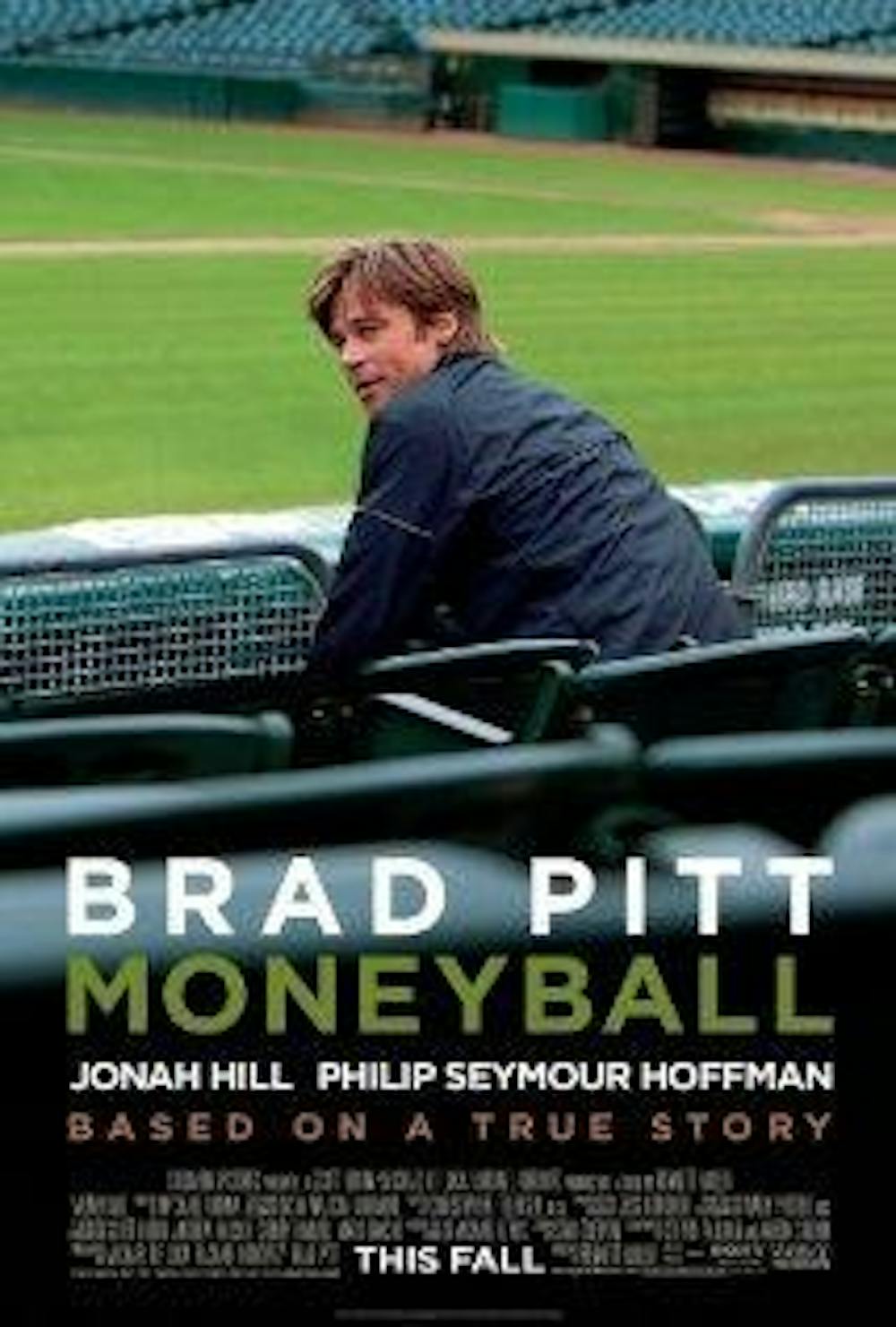Beyond the crisply uniformed product seen on the baseball diamond exists a world of awkward pauses, hideous polo shirts, inequality, chewing tobacco and, most of all, an unquestioned tradition in how to go about business.
“Moneyball” is the story of a man challenging that tradition and nearly succeeding.
The film is an adaptation of Michael Lewis’ 2003 book of the same name. Lewis chronicled both the 2002 Oakland Athletics season — in many ways the epitome of the sabermetrics revolution — and the history of sabermetrics, a system of statistics that goes below the surface of common baseball stats to pinpoint exactly what qualities of a team led to winning.
Given such a number-heavy topic, the film version smartly and naturally focuses on the narrative aspect.
Brad Pitt stars as Billy Beane, Oakland’s general manager. A one-time surefire top baseball prospect, Beane’s professional career — shown in flashbacks interspersed throughout the film — was a bust, and he has come to regard himself as living proof that the traditional theories of baseball scouting based on physical characteristics and gut feelings are flawed.
Before the 2002 season, Beane meets Jonah Hill’s Peter Brand (based on the real-life Paul DePodesta), a young Yale economics graduate that introduces Beane to sabermetrics.
Beane hires Brand as his new assistant general manager, and together the pair goes about replacing several star players that left the low-budget A’s for bigger contracts elsewhere.
The result is a collection of has-beens, oddities and afterthoughts from submarine pitcher Chad Bradford (Casey Bond) to catcher-turned-first baseman Scott Hatteberg (a likable Chris Pratt).
After early season struggles, Beane’s methods are roundly criticized by the “old boys’ club” of baseball scouts and commentators. After some tweaking and clashes with manager Art Howe (Phillip Seymour Hoffman in a solid, but surprisingly small role), though, the A’s catch fire and go on an exhilarating 20-game win streak that propels them to the playoffs before an eventual loss to the Minnesota Twins.
Despite the presence and solid performances of other notable actors, “Moneyball” is largely a two-man show with Pitt and Hill. Accordingly, the film’s strongest scene is simply the two of them sitting in an office masterfully working the phones at the trade deadline, shedding all doubts by the audience, if not the scouts, that these two men know exactly what they are doing.
Pitt is blunt, brash and commanding as Beane, determined to prove his ways work to others so that he in turn knows they work himself. Hill, smartly restrained compared to some of his past roles, plays Brand as bumbling but brilliant and also desperate for success to reassure himself that he belongs.
The script, co-helmed by Aaron Sorkin and Steve Zallian, does a strong job of capturing the thrust of the book, though prior readers will certainly find the film more accessible.
That said, adapting a book based on the economics of baseball is a daunting task, and all parties involved, from the screenwriters to Pitt to director Bennett Miller, come together to produce a better on-field product than could really ever have been hoped for.
Right on the Money

Get stories like this in your inbox
Subscribe





